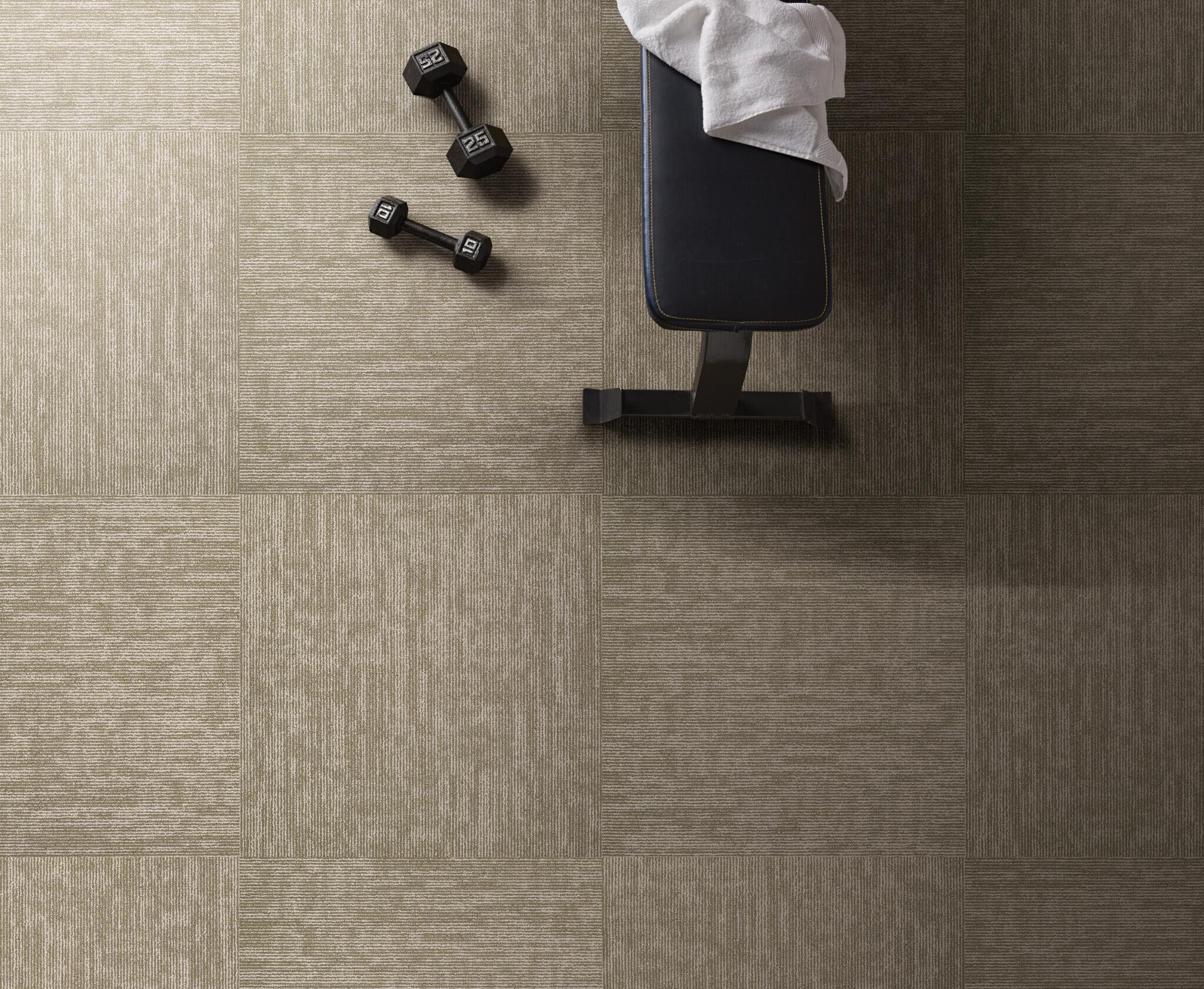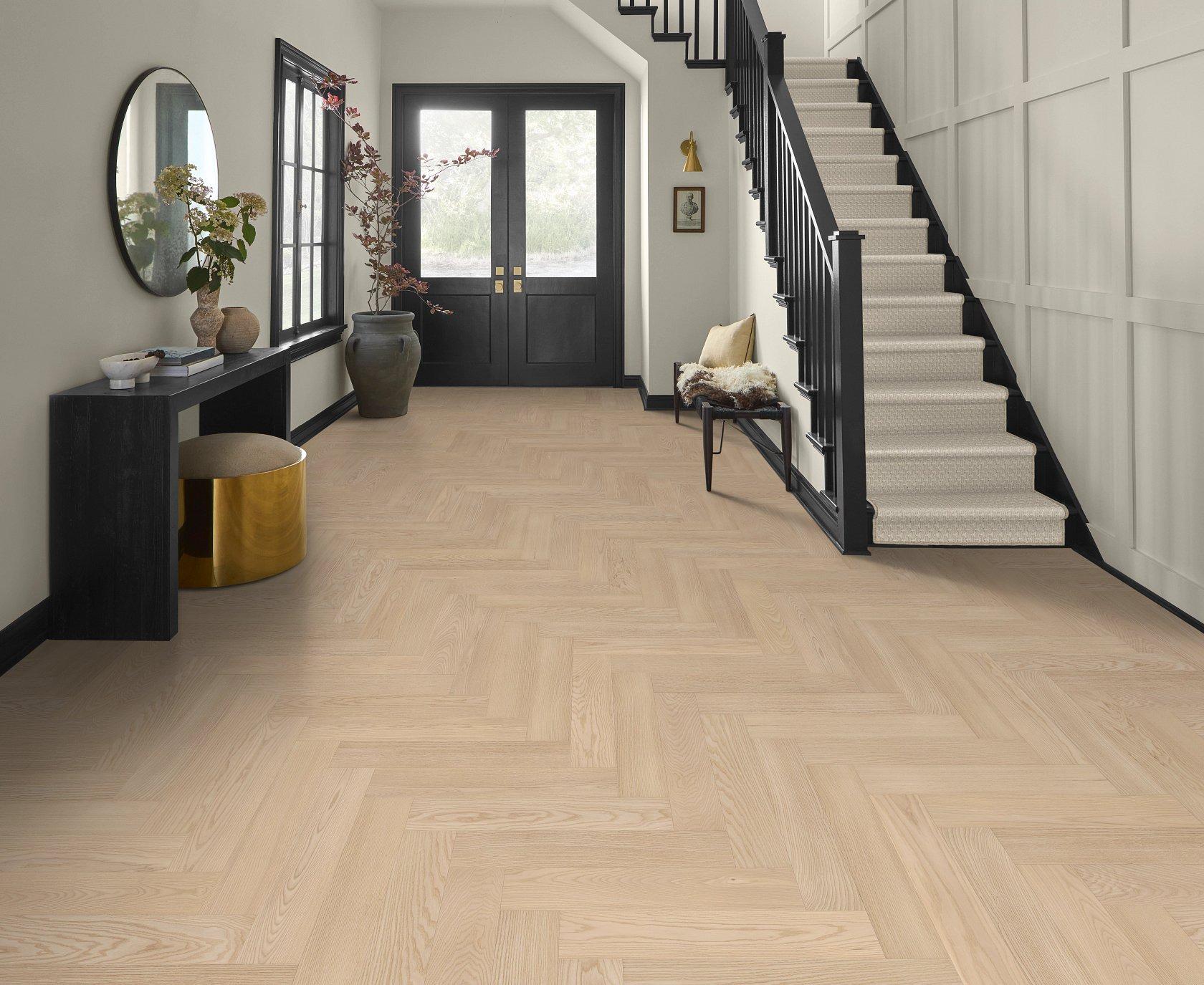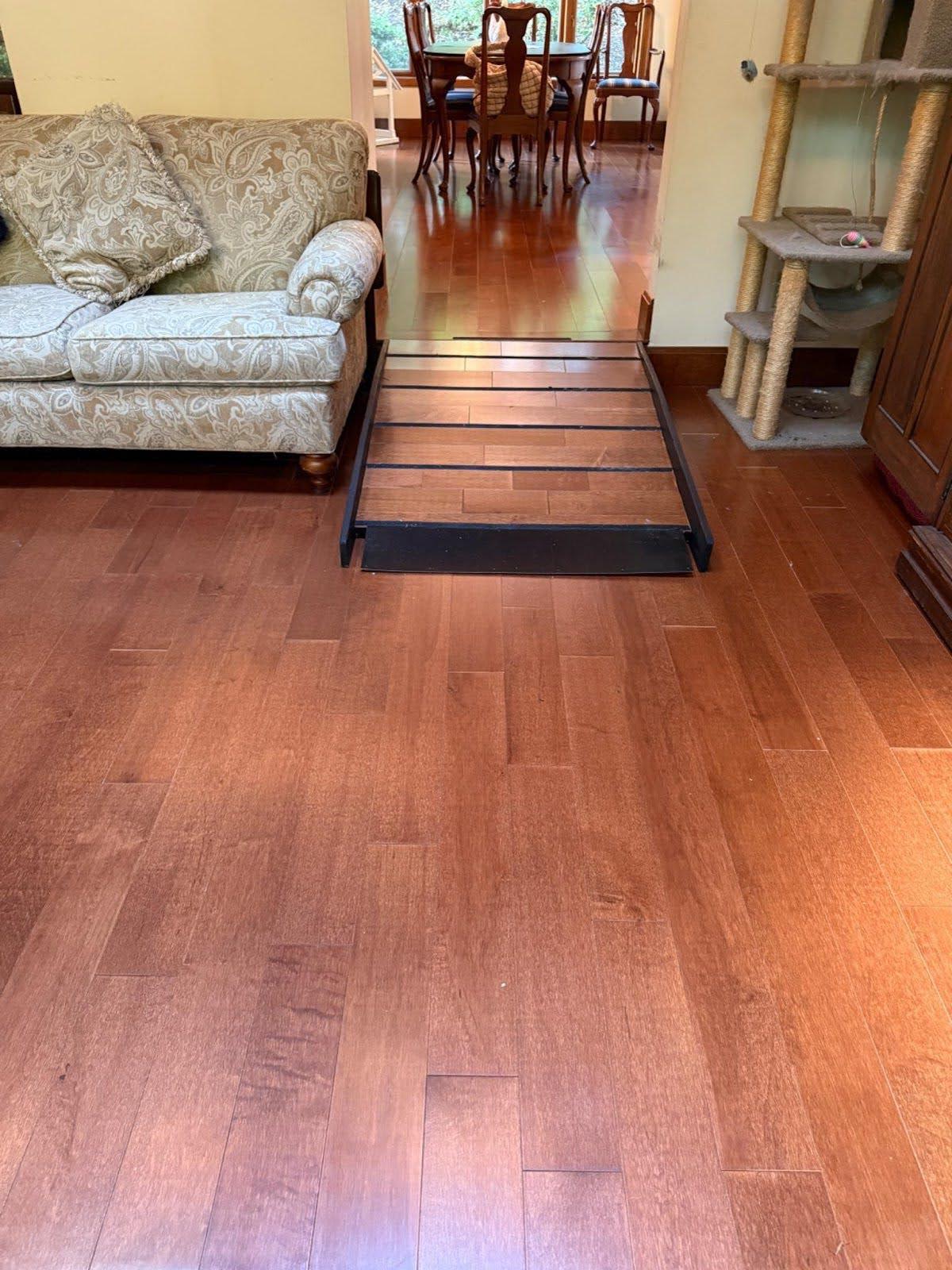Cork flooring offers a sustainable, renewable material that is quickly becoming a go-to option for homeowners across Canada. Once considered a niche choice, cork is a serious contender to replace outdated flooring in key rooms.
Learn about the pros and cons of cork flooring and discover which areas of the home this beautiful option is best suited for.
Cork Flooring: The Basics
Cork flooring is made from the bark of cork oak trees, but it’s different from traditional wood flooring in a big way. Instead of harvesting the entire tree, removing the cork bark doesn’t harm the rest of the tree. Cork regrows its bark in 8-14 years, making it a renewable material with many end-use applications.
The freshly harvested cork is ground into granular pieces, compressed, and bound with a natural or synthetic binder, then formed into blocks or sheets. Finished cork flooring is cut into planks or tiles and includes a protective wear layer and, in some cases, a high-density fiberboard (HDF), similar to those used in laminate or engineered wood.
Why We Love Cork Flooring
Cork offers several characteristics that make it ideal for flooring applications. As mentioned previously, it’s a sustainable solution, and most products utilize a non-toxic synthetic binder, which reduces off-gassing after installation.
There are plenty of other benefits of cork flooring, including:
- Comfort – Cork is soft underfoot, making it a joy to walk and stand on for long periods.
- Thermal insulation – Cork traps air and helps insulate rooms, which lowers heating costs during Regina’s long winters.
- Fire resistance – Naturally fire-retardant, cork only burns at extremely high temperatures.
- Unique aesthetic – Few materials offer the look and feel of cork, offering a playful design option.
- Water-resistance – While not waterproof, sealed cork floors are very water-resistant; wipe away spills and it’s good to go!
- Acoustic insulation – Cork readily absorbs sound, reducing noise from footsteps as well as ambient sounds between rooms.

Is Cork Flooring Soundproof?
Cork isn’t completely soundproof, though it can substantially reduce ambient noise and impact noise. While there is some variation based on the type of cork, installation methods, and other factors, cork absorbs 30-70% of sound waves. That’s one reason cork is often used as an underlayment beneath other flooring materials; 3mm of cork can reduce sound by 10 decibels!
Are There Different Types of Cork Flooring?
There are several ways to categorize types of cork flooring. The best way is to consider construction methods.
- Solid Cork – Comprised of solid tiles or planks glued to the subfloor.
- Engineered Cork – More modern and easier to install, engineered cork is made from layered cork topped with a natural cork veneer.
Our experienced Design Associates will help you choose the best cork flooring option for your space.
Where Cork Flooring Excels
Comfort, sound resistance, and water resistance: these three characteristics make cork a versatile option. Here’s where cork flooring thrives.
- Kitchens – If you spend time cooking and cleaning in the kitchen (that’s all of us!), cork reduces fatigue and eases stress on backs and joints. It’s also warm underfoot when you walk in for your morning coffee!
- Bedrooms – Cork’s noise absorption creates a calm, quiet sleeping area.
- Home offices/studies – Improve productivity with fewer interruptions.
Cork Flooring for Basements: Good Idea?
Homeowners can use cork flooring in basements, but make sure you have a plan for effective moisture management. We recommend using a vapor barrier to keep moisture in check; in many cases, engineered cork is the better option for basements. Done right, you’ll enjoy the thermal and noise insulation benefits of cork floors, plus a soft surface for exercise or a child's play area.
Elevate Your Regina Home with Cork Floors
Find out if cork is the right fit for your home with the help of our experienced Design Associates. We’ll explore and explain all your options, selecting the perfect products and offering expert cork floor installation in Regina and surrounding areas. Let’s get started; schedule your free, in-home consultation today.



